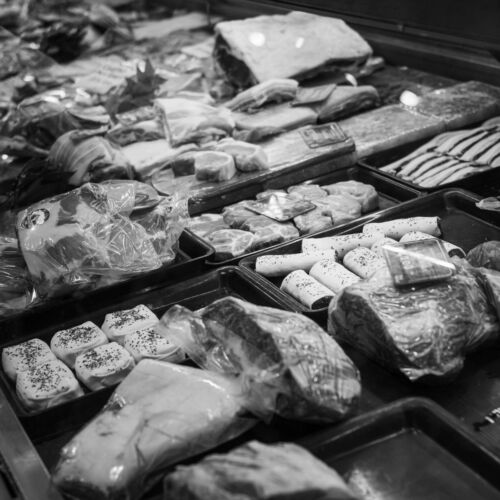How Nutrition Can Help During and After Cancer
by Jean LaMantia, RD

As a cancer survivor myself, I know first hand that cancer presents many nutrition challenges. For my chemo regime, I suffered greatly with nausea, vomiting, rapid weight loss and the ensuring weakness and loss of stamina that accompanied that.
Remembering that experience, I’m always careful not to overwhelm clients that come to me for virtual 1:1 nutrition counselling during their cancer treatment. I’m not one to set high expectations during treatment – I don’t want to add more pressure to an already stressful situation. But, what I will do, is help my clients get through their treatment using nutrition.
There are nutrition strategies for just about all of the typical cancer treatment side-effects including loss of appetite, nausea, vomiting, dehydration, anemia, constipation, diarrhea, taste changes, food aversions, and weight loss. If you have more than one side effect than there is a priority sequence to deal with them. For example, it’s not uncommon for a client to have diarrhea and weight loss. In that scenario, you have to get the diarrhea under control first, otherwise adding more calories, when the body can’t hold on to them is useless and will just made the gastrointestinal issues worse.
I strongly recommend working with a registered dietitian that understands cancer treatment when you are dealing with these problems. Sometimes, there are few side effects of treatment and you can take a different strategy. Instead of trouble shooting treatment problems, you can focus on optimizing nutrition. This is also the focus when treatment ends.
The three goals I have for this stage are; 1) support the immune system, 2) reduce chronic inflammation, 3) consume lots of nutraceuticals (nutrients that have anti-cancer abilities). I call these the “three keys to cancer risk reduction”.
There is evidence to support that what you eat can influence your prognosis and risk of recurrence, which is the number one fear of everyone that’s been through cancer – “will it come back?” If you are living with metastatic disease, then the concern usually focuses to slowing the spread.
This is where the services of a dietitian can really help. There is a lot of misinformation on the internet, a lot of ideas about what you should be doing. But, you want to follow the best researched, most evidenced approaches and not be putting your energy into unproven therapies. Do you know which of the following are good for cancer and which ones are hyped up theories?
Let’s see if you can tell which of these are an evidence-based strategy and which ones aren’t. Read this top 10 list of popular cancer diet recommendations, and track if you think it’s something you should focus on or not (I’ll provide the answers below)
- You should follow an alkaline diet
- You should follow a Mediterranean diet
- You should avoid dairy
- You should avoid soy
- You should avoid gluten
- You should avoid red meat
- You should avoid sugar
- You should eat coconut oil
- You should eat flax
- You should eat salmon and other fatty fishes
Here are quick answers to this list. Check out my website www.jeanlamantia.com for more information on cancer nutrition.
- You should follow an alkaline diet – No. This diet has been studied and there is no evidence that paying attention to the pH of your food has any impact on your cancer. While this is generally a healthy diet with lots of fruits and vegetables and little
processed foods, it might be more restrictive than it has to be and eliminate some otherwise healthy food. - You should follow a Mediterranean diet – Yes. This is one of the most studied dietary patterns and it has found to be very anti-inflammatory.
- You should avoid dairy No. Dairy has been shown to reduce the risk of colorectal cancer. The only cancer that has shown an association with dairy is prostate cancer, when excess intakes are linked to higher risk. Otherwise, dairy provides important nutrients and a good source of protein which is important when recovering from cancer.
- You should avoid soy – No. This is true even for women with estrogen-positive breast cancers. Soy is beneficial both as a nutraceutical and as an immune- supportive nutrient.
- You should avoid gluten – No. There is no evidence of this, unless of course you have celiac disease on non-celiac gluten sensitivity, in which case you should definitely avoid it, as inflammation in the gut can create an unhealthy internal environment.
- You should avoid red meat – Not exactly. In this case, the current recommendation is to avoid processes meat, but to limit red meat. So, while a complete removal from the diet is not supported by the evidence, cutting back is.
- You should avoid sugar – Not exactly. Sugar is not a carcinogen…but a high sugar intake is associated with some cancers. Cutting back on added sugars is a good idea. But this does not include the naturally occurring sugars in fruits and vegetables.
- You should eat coconut oil – Not exactly. Coconut oil is a saturated fat and saturated fats are inflammatory. You can use it, but don’t make this your primary oil. Instead use an anti-inflammatory oil like extra virgin olive oil.
- You should eat flax – Yes. Flax contains lignans which have been shown to be protective of cancer…and yet, this is true even if you have an estrogen driven cancer.
- You should eat salmon and other fatty fishes – Yes. Salmon and fatty fishes are excellent sources of omega-3 fatty acids which is the strongest dietary anti-inflammatory.
To read more about cancer nutrition or to join Jean’s small group program for cancer patients
and survivors called Cancer Nutrition School check out www.jeanlamantia.com
About the Author: Jean LaMantia is a Registered Dietitian and the owner of her own private practice, she provides services to clients in Ontario, Nova Scotia, Manitoba, and Saskatchewan. Learn more about Jean at he website www.jeanlamantia.com.
Reviewed by: Lindsey McGregor, RD
The Site is not intended to be a substitute for professional advice. Under no circumstances will we be liable for any loss or damage caused by your reliance on information obtained through the Site. It is your responsibility to evaluate the accuracy, completeness or usefulness of any information, opinion, advice or other content available through the Site. Please seek the advice of professionals, as appropriate, regarding the evaluation of any specific information, opinion, advice or other content. Never disregard professional advice, including medical advice, or delay in seeking it, because of something you have read on this Site.

